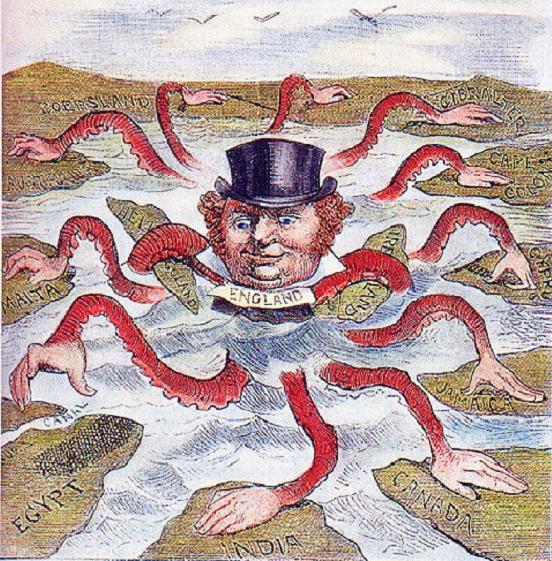
The ideological origins of the British India had a rather interesting source. Many British intellectuals of the time held the view that Indian people needed enlightenment and progress and the way to provide it would begin with colonization. Such eminent philosophers like John Stuart Mill voiced similar opinions.
It was believed that, though Britain suffered substantial economic loss and political disadvantages in governing India, progress and the general happiness of Indian people is facilitated under British rule than when they were governed by their native kings. Thus, if only the benefits which the Indians would gain from British rule were taken into account, it was desirable for the British to rule the Indians.
At the beginning of the 18th century, the East India Company’s inauguration in India was one of the most significant commercial events. The East India Company’s trade was built on the lure of Indian produce. India offered foreigners the skills of its craftsmen in “weaving cloth and winding raw silk, agricultural products for export, such as sugar, the indigo dye or opium, and the services of substantial merchants and rich bankers”. During the 17th century, the effective rule of the Mughal emperors throughout much of the subcontinent provided security for trade to flourish.
However, by the end of the century, the Company was militarily active through out India and rapidly extending elsewhere. British involvement in India during the 18th century is comprised of two stages, one ending and the other beginning at mid-century. In the early part of the century, the British were a trading presence at certain points along the coast. But from the 1750s they began to wage war on land in eastern and south-eastern India and to reap the reward of successful warfare, which was the exercise of political power, most notably over the affluent province of Bengal. By the end of the century British rule had expanded from Ganges valley to Delhi and over most of the peninsula of southern India. By this time the British had established a ruthless dominance that would enable them in subsequent years to subdue all the remaining Indian states by either conquering them or forcing their rulers to become subordinates.
What opinion in Britain came to recognize as a new British empire in India remained under the authority of the East India Company, even if the importance of the national concerns now involved meant that the Company had to submit to increasingly close supervision by the British crown and to frequent inquiries by the parliament. In India, the governors of the Company’s commercial settlements became governors of provinces and, although the East India Company continued to trade, many of its servants became administrators in the new British regimes. Large armies were created, largely composed of Indian soldiers but with some regular British regiments. These armies were used to defend the Company’s territories, to coerce neighboring Indian states and to crush any potential internal uprising.
“The British East India Company was probably the most successful chapter in the British Empire’s history as it was responsible for the colonization of the Indian subcontinent, which would become the British Empire’s largest source of revenue, along with the conquest of Hong Kong, Singapore, Ceylon, Malaya (which was also one of the largest sources of revenue) and other surrounding Asian countries, and were thus responsible for establishing Britain’s Asian empire, the most important component of the British Empire.” (Bailey)